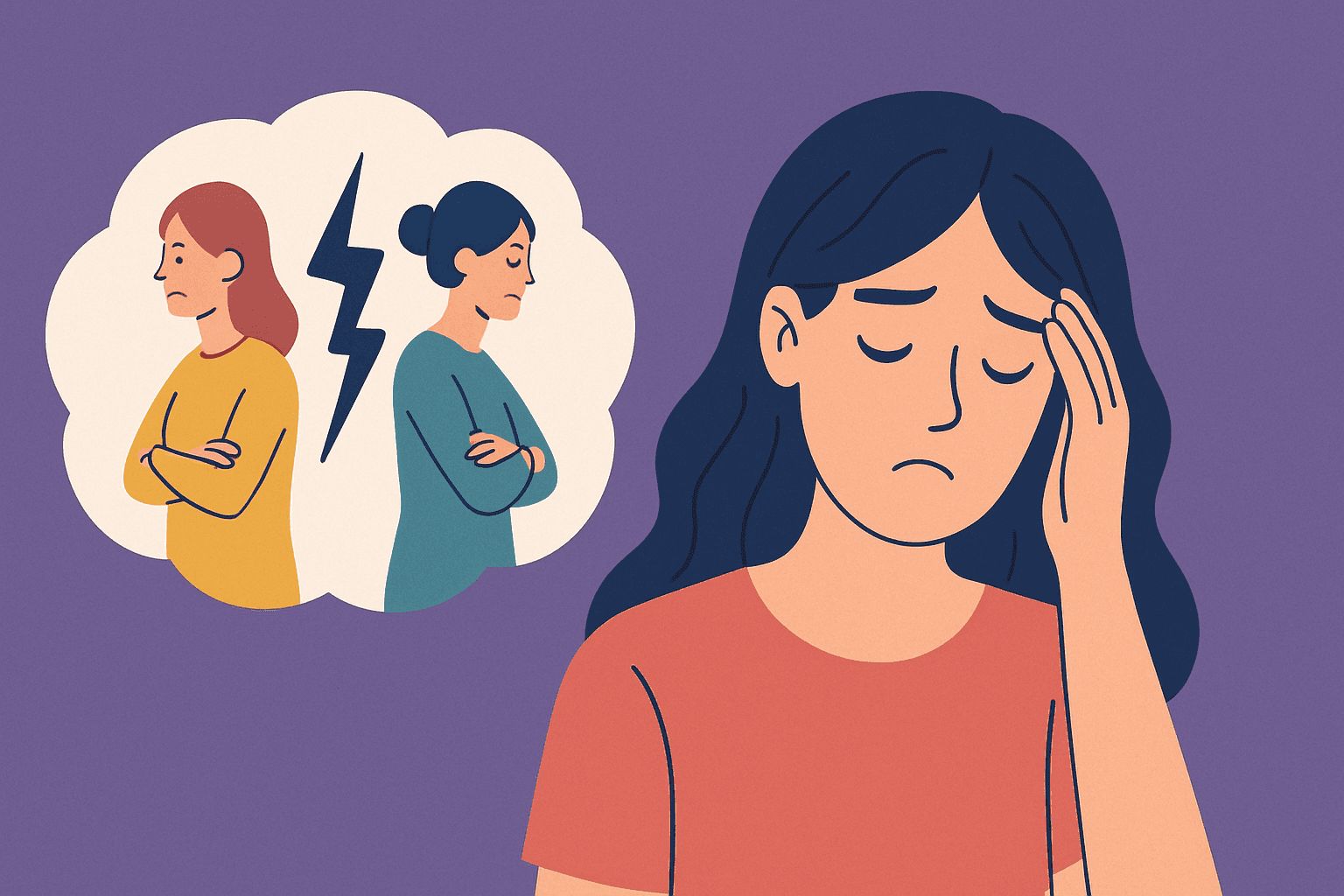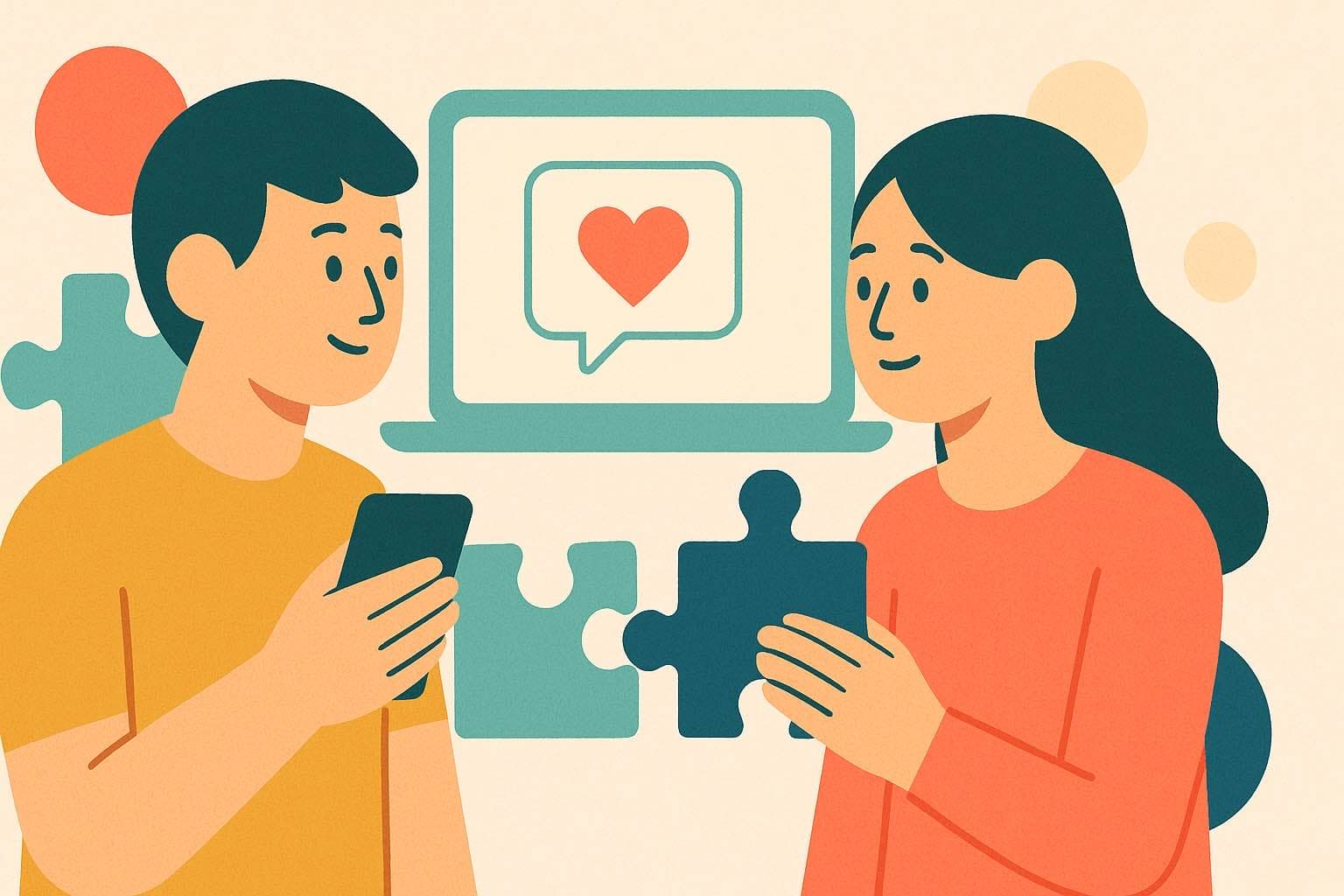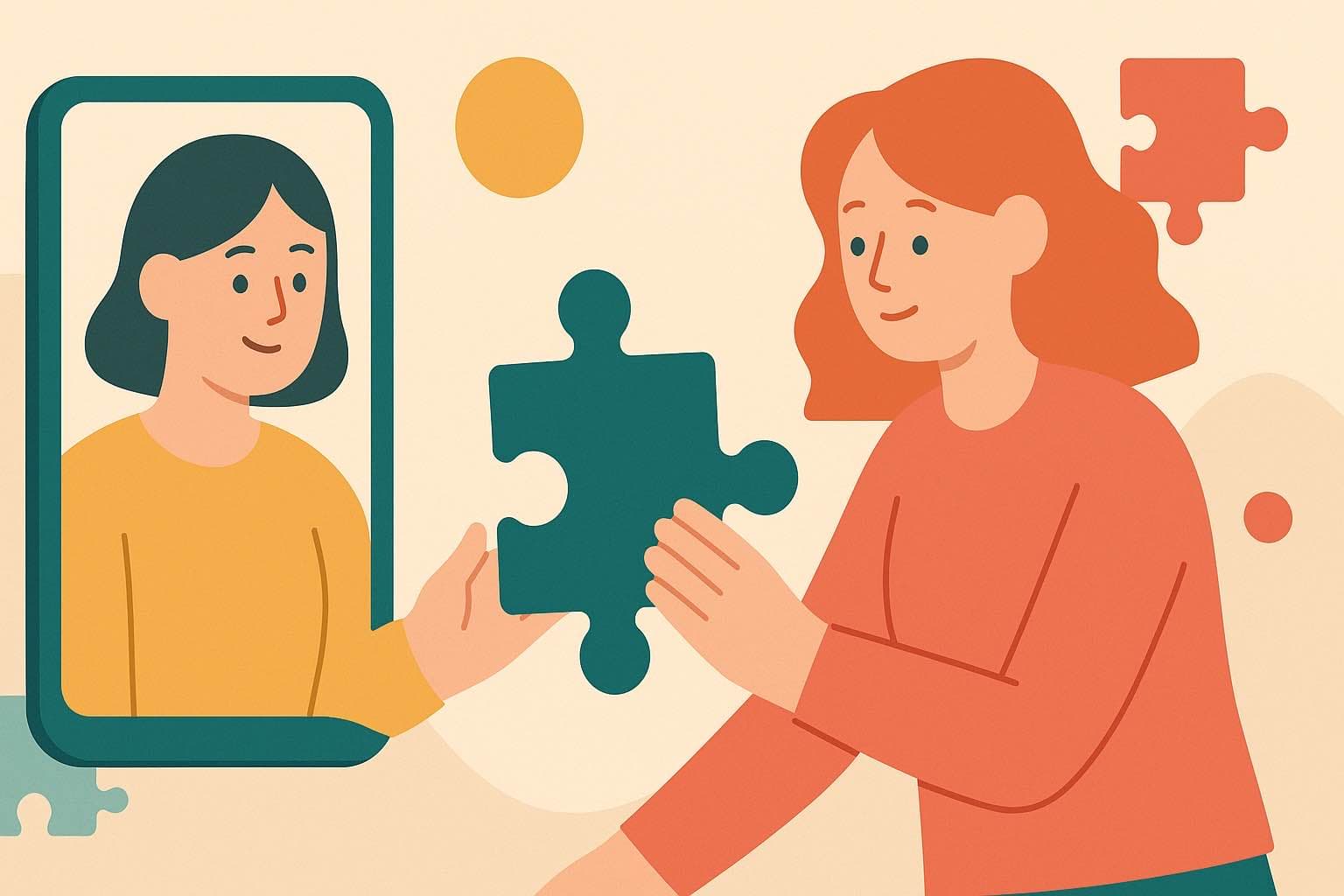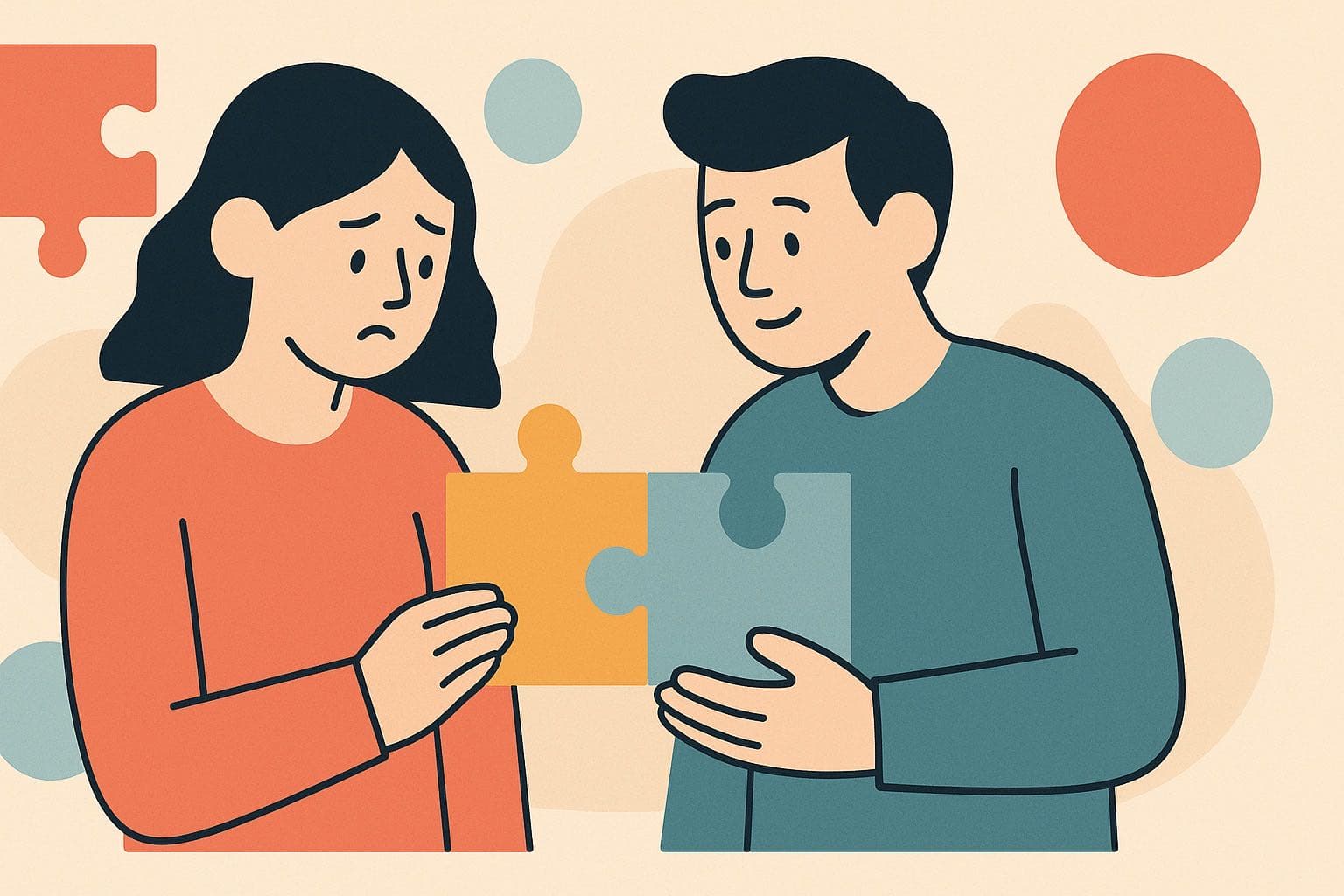How to Master Coping After Friendship Breakup: 12 Life-Changing Strategies That Actually Work
Discover proven strategies for coping after friendship breakup. Learn healthy ways to heal, rebuild confidence, and create stronger connections. Expert-backed advice for moving forward.

When your closest friend suddenly becomes a stranger, the pain can feel overwhelming. Coping after friendship breakup requires understanding that these losses are as significant as romantic breakups, yet society rarely acknowledges their profound impact. Research shows that up to 70% of close friendships dissolve after seven years, making friendship loss a universal human experience that deserves proper attention and healing strategies.
Unlike romantic breakups, friendship endings often lack closure, clear communication, or social support systems. This guide provides comprehensive, evidence-based strategies for coping after friendship breakup while rebuilding your emotional resilience and social connections.
Understanding Friendship Breakups: The Hidden Pain
Friendship breakups represent a unique form of loss that psychologists call "disenfranchised grief" - feelings of loss that society doesn't openly acknowledge or support. Unlike romantic relationships, friendships don't have established scripts for ending or healing.
Research from American Psychological Association reveals that friendship dissolution follows predictable patterns. Some friendships end dramatically through conflicts, while others fade gradually through what experts call "The Great Fizzle." Both types create genuine emotional trauma that requires intentional healing.
Why friendship loss feels so devastating:
- Friends often know our deepest secrets and vulnerabilities
- Friendships typically last longer than romantic relationships
- Society lacks frameworks for processing friendship grief
- Mutual friends may create ongoing social complications
The pain intensifies because friendship breakups challenge our fundamental beliefs about loyalty, trust, and connection. When someone who promised to be there "forever" disappears, it can shake your faith in all relationships.
Why Friendship Breakups Hurt So Much
The emotional impact of losing a close friend stems from several psychological factors that make these losses particularly challenging to process.
Attachment disruption occurs when we lose someone who provided emotional security and belonging. Psychologists explain that close friends activate the same attachment systems as romantic partners, making their loss equally devastating.
Identity confusion follows friendship loss because friends often reflect and validate our sense of self. When that mirror disappears, we may question our own worth and identity. The memories, inside jokes, and shared experiences that once brought joy can become sources of pain.
Social network disruption amplifies the hurt. Unlike romantic breakups where friend groups typically support the grieving person, friendship breakups can split social circles and create awkward dynamics that last for years.
Research shows that being rejected by a friend triggers the same brain regions associated with physical pain. This neurological response explains why phrases like "heartbreak" accurately describe the experience of friendship loss.
The lack of cultural scripts for friendship grief makes healing more difficult. Society provides clear expectations for mourning family members or romantic partners, but friendship loss often goes unrecognized, leaving people feeling isolated in their pain.
Common Types of Friendship Endings
Understanding how your friendship ended can help determine the most effective coping after friendship breakup strategies. Research identifies four primary patterns of friendship dissolution.
The Sudden Break occurs when a specific incident - betrayal, major disagreement, or boundary violation - immediately ends the relationship. These breakups often involve anger, hurt feelings, and clear blame assignment. While painful, they provide clarity about what happened.
The Slow Fade represents the most common type of friendship ending. Communication gradually decreases, plans get canceled repeatedly, and emotional intimacy disappears over months or years. These endings create confusion because there's no clear moment when the friendship officially ended.
The Geographic Drift happens when life circumstances - moving, job changes, or relationship commitments - create distance that friendships can't survive. These endings often involve mutual sadness rather than anger, but the loss still requires grieving.
The Values Misalignment occurs when friends grow in different directions regarding core beliefs, lifestyle choices, or priorities. Political differences, religious changes, or life stage mismatches can create unbridgeable gaps between once-close friends.
Each type requires differenthealing approaches. Sudden breaks may need anger processing and forgiveness work, while slow fades often require closure-creating activities since no clear ending occurred.
The Emotional Stages of Friendship Grief
Coping after friendship breakup involves moving through predictable emotional stages that mirror grief patterns observed in other losses. Understanding these stages helps normalize your experience and provides hope for eventual healing.
Denial and Disbelief often begin the process. You might find yourself checking their social media constantly, hoping for reconciliation signals, or believing the friendship will naturally resume. This stage protects your psyche from the full impact of loss.
Anger and Resentment typically follow as reality sets in. You may feel furious about time invested, secrets shared, or promises broken. This anger, while uncomfortable, represents healthy recognition that something valuable was lost.
Bargaining involves mental negotiations about what you could have done differently. You might replay conversations, analyze their behavior for hidden meanings, or consider reaching out "just to see how they are."
Depression and Sadness emerge as the full weight of loss settles in. This stage involves grieving not just the friendship, but the future experiences you'll never share and the person you thought you knew.
Acceptance and Integration mark the healing phase where you can remember the friendship's positive aspects without overwhelming pain. You begin investing energy in present relationships rather than mourning what's gone.
These stages aren't linear - you might cycle through them multiple times or experience several simultaneously. However, understanding the process helps you recognize that intense emotions are temporary parts of natural healing.
Immediate Coping Strategies for Friendship Loss
The first weeks after a friendship ends require specific strategies for managing acute emotional distress while preventing unhealthy behaviors that can complicate healing.
Practice digital boundaries by unfollowing or muting your former friend on social media platforms. Constantly seeing their updates prolongs pain and prevents emotional healing. Consider using apps that block specific websites if you're struggling with compulsive checking.
Reach out to trusted support systems within 24-48 hours of the breakup. Choose people who aren't mutual friends to avoid creating additional drama. Express your needs clearly - whether you want advice, distraction, or simply someone to listen.
Engage in grounding activities when overwhelming emotions arise. Use the 5-4-3-2-1 technique: identify 5 things you can see, 4 you can touch, 3 you can hear, 2 you can smell, and 1 you can taste. This brings your nervous system back to the present moment.
Maintain routine stability by keeping regular sleep, meal, and exercise schedules. Friendship breakups can disrupt basic self-care, but maintaining structure supports emotional resilience and prevents depression from deepening.
Avoid impulsive communication with your former friend for at least two weeks. Write letters you don't send, record voice memos you don't share, or journal extensively, but resist the urge to reach out while emotions are most intense.
Create new daily rituals to replace activities you shared with your former friend. If you always texted them during your morning coffee, use that time for meditation, reading, or calling a family member instead.
Self-Care During the Healing Process
Coping after friendship breakup requires intentional self-care that addresses physical, emotional, and social needs. This isn't selfish - it's essential foundation work for rebuilding your life and relationships.
Physical self-care becomes crucial because emotional stress manifests in your body. Prioritize adequate sleep, nutritious meals, and regular movement. Even gentle walking can boost mood-regulating neurotransmitters and provide mental clarity for processing emotions.
Research shows that exercise particularly helps with friendship grief because it releases endorphins that naturally improve mood while providing healthy distraction from painful thoughts. Choose activities you genuinely enjoy rather than forcing yourself into intense workouts that feel punitive.
Emotional self-care involves allowing yourself to feel the full range of emotions without judgment. Cry when you need to, feel angry without shame, and acknowledge that grief comes in waves. Fighting these emotions typically prolongs the healing process.
Social self-care means being selective about social commitments during early healing. Say no to events that feel overwhelming while saying yes to low-pressure activities with supportive people. Quality matters more than quantity in your social interactions.
Spiritual self-care can provide comfort regardless of religious beliefs. This might involve meditation, prayer, time in nature, or engaging with art, music, or literature that feeds your soul. Many people find that friendship loss deepens their spiritual practices.
Creative self-care offers healthy outlets for processing complex emotions. Try journaling, painting, music, dance, or any creative expression that feels authentic. The goal isn't producing masterpieces but rather channeling difficult feelings into something constructive.
Processing Your Emotions Healthily
Raw emotions from friendship loss need proper processing to prevent them from becoming stuck or developing into lasting mental health issues. Healthy emotional processing transforms pain into wisdom and growth.
Journaling provides a private space for exploring thoughts and feelings without fear of judgment. Write about your anger, sadness, confusion, or relief without editing yourself. Ask questions like: "What did this friendship teach me?" and "How do I want to show up differently in future relationships?"
Letter writing can provide closure when direct communication isn't possible or advisable. Write everything you want to say to your former friend, then decide whether to send it, burn it, or keep it for future reflection. The act of writing often provides more relief than actually sending the letter.
Therapy or counseling becomes essential if emotions feel unmanageable or if the friendship loss triggers deeper issues around abandonment, trust, or self-worth. Professional support can help you develop coping skills and process trauma that might be complicating your grief.
Support groups connect you with others experiencing similar losses. Online communities or local meetups focused on friendship or general grief can reduce isolation and provide practical coping strategies from people who truly understand.
Creative expression allows emotions to flow through art, music, movement, or writing. You don't need artistic talent - the healing comes from the process of creation, not the final product. Many people discover new talents or rediscover old ones during friendship grief.
Mindfulness practices help you observe emotions without being overwhelmed by them. Even five minutes of daily meditation, deep breathing, or mindful walking can create space between you and intense feelings, making them more manageable.
Rebuilding Your Social Circle
After losing a significant friendship, rebuilding social connections requires intention, patience, and courage. Research shows that forming close friendships takes over 200 hours of shared time, so patience with the process becomes essential.
Assess your existing relationships by identifying people who consistently show up with support, kindness, and reliability. These relationships may have been overshadowed by your former close friendship but can now receive more attention and investment.
Reconnect with old friends you may have neglected during your intense friendship. Reach out to people from different life stages - childhood friends, former colleagues, or college roommates who knew you before this relationship. They can remind you of aspects of yourself you may have forgotten.
Join new communities aligned with your current interests and values. Consider hobby groups, volunteer organizations, fitness classes, or professional associations. The key is choosing activities you genuinely enjoy rather than forcing yourself into situations that feel inauthentic.
Practice vulnerability gradually with new potential friends. Share increasingly personal details as trust builds, but avoid trauma-dumping about your friendship breakup onto new connections. Let relationships develop naturally rather than trying to replace what you lost immediately.
Set healthy boundaries from the beginning of new friendships. Use lessons learned from your previous experience to communicate needs clearly, maintain your independence, and avoid becoming overly dependent on any single relationship.
Quality over quantity should guide your approach to new friendships. Focus on developing a few meaningful connections rather than trying to fill your social calendar with superficial interactions. Deep friendships require time, effort, and mutual investment.
Learning from the Experience
Transform your friendship breakup from a purely painful experience into a catalyst for personal growth and relationship wisdom. This perspective shift doesn't minimize your pain but helps create meaning from suffering.
Identify patterns in your friendship history. Look for recurring themes in how your relationships begin, develop, and end. Do you tend to give too much? Have difficulty setting boundaries? Choose friends who are emotionally unavailable? Awareness creates opportunities for change.
Clarify your values around friendship. What qualities matter most to you in close relationships? How do you want to show up as a friend? What behaviors are you willing to accept, and what represents a dealbreaker? This clarity guides future relationship decisions.
Examine your attachment style and how it influences your friendships. Do you become anxiously attached and need constant reassurance? Are you avoidant and struggle with intimacy? Understanding your patterns helps you make conscious choices rather than repeating unconscious behaviors.
Practice self-compassion by treating yourself with the same kindness you'd offer a good friend going through similar pain. Avoid harsh self-criticism about mistakes made or warning signs missed. Everyone makes relationship mistakes - they're part of learning and growing.
Develop emotional intelligence by improving your ability to recognize, understand, and manage emotions - both your own and others'. This skill enhances all relationships and helps prevent future conflicts from escalating into friendship endings.
Build resilience by recognizing that you survived this loss and can handle future challenges. Each difficult experience builds emotional strength and confidence in your ability to navigate life's inevitable ups and downs.
Preventing Future Friendship Breakups
While not all friendship endings are preventable, certain strategies can help you build stronger, more resilient relationships that can weather normal challenges and conflicts.
Communicate openly and honestly about needs, boundaries, and concerns before they become major issues. Address small problems quickly rather than letting resentment build. Practice having difficult conversations with kindness and respect.
Maintain your independence within friendships by keeping individual interests, other relationships, and personal goals. Healthy friendships enhance your life but don't become your entire life. This balance prevents codependency and reduces pressure on the relationship.
Practice forgiveness for minor slights and misunderstandings. Perfect friends don't exist - everyone makes mistakes, has bad days, and occasionally says thoughtless things. Distinguish between patterns of harmful behavior and isolated incidents that deserve grace.
Show appreciation regularly by expressing gratitude for your friends' presence, support, and positive qualities. People need to feel valued and acknowledged. Small gestures - thank you notes, thoughtful texts, or quality time - strengthen relationship bonds.
Respect boundaries and expect the same in return. Healthy friendships involve mutual respect for each other's time, energy, privacy, and other relationships. Pushing boundaries or ignoring "no" creates resentment and conflict.
Invest consistently in your friendships through regular contact, shared activities, and emotional support. Relationships require ongoing attention to thrive. Schedule friend time just as you would any other important commitment.
When Professional Help Is Needed
Sometimes coping after friendship breakup requires professional support, especially when grief becomes complicated or triggers deeper mental health issues. Recognizing when to seek help prevents prolonged suffering and promotes faster healing.
Consider therapy if you experience persistent depression lasting more than two weeks, anxiety that interferes with daily functioning, or thoughts of self-harm. Additionally, if the friendship loss triggers past trauma around abandonment, rejection, or abuse, professional support becomes essential.
Seek immediate help if you have suicidal thoughts, engage in self-destructive behaviors, or feel unable to care for yourself. Friendship grief, while painful, shouldn't threaten your safety or wellbeing. Crisis hotlines and emergency services provide immediate support.
Therapeutic approaches that help with friendship grief include cognitive-behavioral therapy (CBT) for changing negative thought patterns, dialectical behavior therapy (DBT) for emotional regulation skills, and attachment-based therapy for addressing relationship patterns.
Support groups specifically for friendship loss or general grief can supplement individual therapy. Many people find comfort in connecting with others who understand their experience. Online groups provide options if local resources aren't available.
Psychiatric evaluation may be helpful if you have a history of depression, anxiety, or other mental health conditions that the friendship loss might exacerbate. Medication can provide temporary support while you develop coping skills.
Duration of therapy varies based on individual needs, but most people benefit from at least 8-12 sessions focused on grief processing and relationship skill development. Therapy provides safe space for exploring complex emotions and developing healthier relationship patterns.
Moving Forward with Confidence
The final stage of coping after friendship breakup involves integrating lessons learned and moving forward with renewed confidence in your ability to form and maintain healthy relationships.
Rebuild self-trust by acknowledging your growth, wisdom gained, and resilience demonstrated through this difficult experience. You survived friendship loss and emerged stronger - this is evidence of your capacity to handle life's challenges.
Practice gratitude for the positive aspects of your ended friendship while maintaining clarity about why it needed to end. This balanced perspective honors the good memories without romanticizing an unhealthy relationship.
Open yourself to new connections when you feel emotionally ready. This timing varies for everyone - some people need months while others need years. Trust your instincts about when you're ready to invest in new friendships.
Set realistic expectations for future friendships. Perfect relationships don't exist, and all connections involve some conflict and disappointment. The goal is finding people who share your values, communicate well, and treat you with respect.
Maintain perspective by remembering that friendship loss, while painful, is a normal part of life. Most adults experience multiple friendship endings throughout their lifetime. This doesn't reflect personal failure but rather the natural evolution of human relationships.
Celebrate your courage in being willing to connect deeply with others despite the risk of future loss. Meaningful relationships require vulnerability, and your willingness to remain open after being hurt demonstrates remarkable strength and wisdom.
Frequently Asked Questions About Friendship Breakups
How long does it take to get over a friendship breakup? There's no standard timeline for healing from friendship loss. Most people experience significant improvement within 3-6 months, but complete healing can take longer, especially for very close or long-term friendships. Factors affecting recovery time include the relationship's depth, how it ended, your support system, and coping skills.
Is it normal to feel worse about a friendship breakup than romantic breakups? Absolutely. Friendships often last longer than romantic relationships and involve different types of intimacy and trust. Society provides more support for romantic breakups, making friendship loss feel more isolating. Your feelings are valid regardless of the relationship type.
Should I try to get my friend back? This depends on why the friendship ended and whether both people are willing to address underlying issues. If the breakup involved abuse, betrayal, or fundamental value conflicts, reconciliation might not be healthy. However, if it was due to misunderstandings or poor communication, respectful conversation might help.
How do I handle mutual friends after a friendship breakup? Communicate honestly but briefly about the situation without asking people to choose sides. Focus on maintaining your own friendships rather than trying to control others' relationships. Avoid discussing your former friend extensively with mutual friends, as this can create drama and discomfort.
What if I don't have other friends to rely on for support? Consider reaching out to family members, acquaintances who might become closer friends, online support communities, or professional counselors. This might also be an opportunity to join new activities and meet people with similar interests. Building a support network takes time but is definitely possible.
How do I stop obsessing about what went wrong? Limit yourself to a specific amount of time daily (perhaps 15 minutes) to think about the friendship, then redirect your attention to present activities. Journaling, therapy, or talking with trusted friends can help process these thoughts. Remember that some questions may never have clear answers, and that's okay.
Conclusion: Your Journey Forward
Coping after friendship breakup represents one of life's most challenging yet potentially transformative experiences. While the pain feels overwhelming initially, this loss can become a catalyst for deeper self-understanding, improved relationship skills, and stronger emotional resilience.
Remember that friendship grief is real, valid, and deserving of the same attention as any other significant loss. Take time to heal properly, seek support when needed, and trust that with intentional effort, you can emerge from this experience with greater wisdom and the capacity for even more meaningful connections.
Your ability to love deeply, even knowing the risk of loss, demonstrates remarkable courage. That same courage will guide you toward fulfilling relationships that honor your growth and authentic self. The friendship that ended made space for new connections that will serve your current chapter of life.
We know reaching out feels scary. That's why Peachi guides you step-by-step through the hardest conversation you need to have.
Related Articles

Digital Tools for Friendship Restoration for Teens and College Students: 7 Apps That Actually Work
Discover 7 powerful digital tools that help teens and college students repair broken friendships. From AI coaches to structured conversations, learn how to fix friendships fast.

Digital Tools for Friendship Restoration: How to Blend Online and Offline Repair
Discover proven digital tools and strategies to restore damaged friendships. Learn how to combine online platforms with offline actions for meaningful reconciliation.

Conflict with a Friend? Here's the Step-by-Step Fix
Learn how to fix a friendship after conflict with proven communication strategies, emotional repair techniques, and actionable steps to rebuild trust.

How to Survive a Friend Breakup When You Share the Same Friend Group (Without Losing Your Mind)
Friend breakups hurt worse when you share the same social circle. Learn proven strategies to heal, set boundaries, and navigate awkward group dynamics without losing yourself.